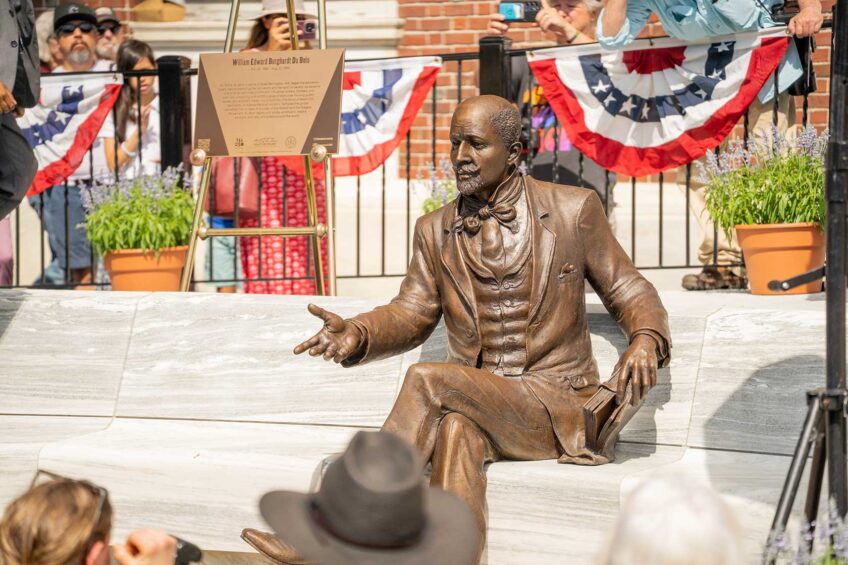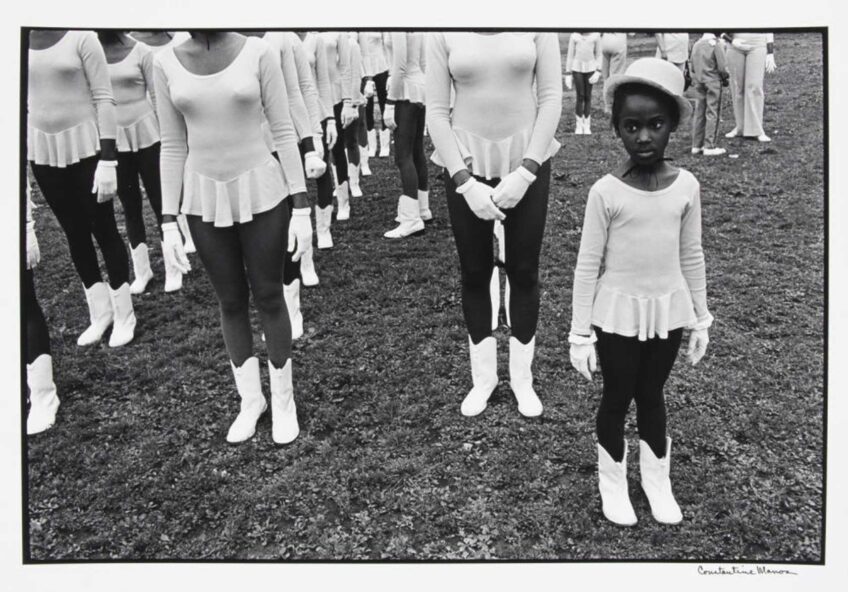Dr. Solomon Carter Fuller: Nation’s first black psychiatrist
Black History
Dr. Solomon Carter Fuller, the nation’s first black psychiatrist, endured employment discrimination to make significant contributions to Alzheimer’s disease research and the development of American psychiatry. He was born in Monrovia, Liberia on Aug. 11, 1872. His grandfather, John Lewis Fuller, a slave and skilled shoemaker from Petersburg, Va., toiled, saved his money and purchased both his freedom and that of his companion, Nancy — a white indentured servant. The couple had eight children. Seeking greater employment opportunities, they moved to Norfolk, Va., but by 1847, Nancy had passed away.
Racial persecution and deteriorating social and economic conditions in the antebellum South induced John Fuller to flee the United States for Africa, along with thousands of other free black people desiring better lives for themselves and their families. With financial help from the American Colonization Society — founded in 1816 to assist free blacks in emigrating from America to Africa — Fuller’s grandfather, accompanied by his youngest son, Solomon, his daughter, Rebecca, and her family, set sail on Nov. 27, 1852 for Liberia, where they helped to establish a settlement of African Americans.
Solomon C. Fuller Sr., John Fuller’s son, became a large landowner, coffee planter and Liberian government official. He married Liberian-born Anna Ursula James, the daughter of medical missionaries, and they moved into a house on Ashmand St. in Monrovia, where Solomon Jr. was born.
Anna, young Solomon’s mother, home-schooled him until the age of 10 and taught him Latin. Then he enrolled in a private school run by Episcopalian missionaries. At 12 years old, he left home to attend the College Preparatory School in Monrovia, where he continued to study Latin. Distinguishing himself as an exemplary student, Solomon was admitted to the sub-freshman class of Liberia College at age 16. In March 1889, however, halfway through his freshman year, his father died. Three months later, at the age of 17, Solomon left Liberia for the United States and, in the fall of 1889, enrolled at Livingstone College in Salisbury, N.C. Formerly the Zion Wesley Institute, Livingstone College was established for black students in 1879 by the African Methodist Episcopal Zion Church.
By working as a typesetter in the Livingston College Press printing office, Fuller was able to pay his college expenses. He graduated in May 1893, earning his Bachelor of Arts degree with honors. Then he set out for Brooklyn, N.Y. in March 1894 to attend Long Island College Hospital. He paid his tuition by serving as a waiter in a boarding house. Later that year, in the fall, Fuller transferred to Boston University School of Medicine. While there, he worked for $4 a week as an elevator operator in a large apartment building on Commonwealth Avenue. He obtained his medical degree in the spring of 1897.
Following Fuller’s graduation from medical school, his neurology professor, Dr. Edward P. Colby, impressed with his academic ability, arranged for him to meet with Dr. George Adams. Adams was the superintendent of the Westborough Insane Hospital (later known as the Westborough State Hospital) — a state facility located 35 miles west of Boston, established on June 3, 1884 “for the care and treatment of the insane, upon the principles of medicine known as homeopathic.” Adams immediately hired Fuller as an intern in the hospital’s pathology laboratory.
After passing his Massachusetts medical board examinations, Fuller received his license to practice medicine in July 1898. He spent most of his time performing unpleasant work — autopsies — the purpose of which was to collect and analyze tissue sections from deceased mental patients. Adept at his job, he was promoted to pathologist in 1899. The hospital paid him a salary of $25 a month, while paying a more recently hired white physician twice that amount. Fuller recalled, “I was so furious I was about ready to throw in the sponge, but Dr. Adams advised me not to do that.” The doctor decided to stay on as pathologist.
That same year, 1899, he was appointed instructor of pathology at the Boston University School of Medicine, becoming one of the first African Americans to hold a post at a medical school other than Howard and Meharry. Sadly, though, his alma mater discriminated against him in compensation as well; the medical school paid him a modest salary of $24 a month for his teaching, compared to $28 a month for other instructors.
Despite the fact that turn-of-the-century racism restricted his pay, Fuller was not one to agitate for equal rights. He took great pride in his work and, to wage war against that racism, wielded the weapon of academic excellence in medical research. He focused that research on manic-depressive psychosis, senility, schizophrenia and hereditary brain disease.
Dr. Fuller was best known for two important accomplishments: his groundbreaking research on Alzheimer’s disease — a degenerative neurological disorder in which memory, judgment and the ability to reason progressively deteriorate — and his contributions to the medical literature in the field of psychiatry. He published papers in several medical journals, presenting his first, “The report of four cases of pernicious anemia in insane subjects with a consideration of the nervous sequelae of the disease,” on April 10, 1901 at the Massachusetts Homeopathic Medical Society’s 61st annual meeting, held at Boston’s Pilgrim Hall. The neuropathologist published the paper in the New England Medical Gazette.
In the winter of 1900, Fuller took a leave of absence from Westborough Insane Hospital to pursue advanced study at the Carnegie Laboratory in New York, and from November 1904 to August 1905, he performed further research in Germany at the psychiatric clinic of the University of Munich, studying under professors Emil Kraepelin and Alois Alzheimer. In an effort to improve his skills in analyzing brain tissue and its relation to mental illness, he took courses in pathology. Fuller’s biographer, Mary Kaplan, in her book, Solomon Carter Fuller: Where My Caravan Has Rested, noted that the doctor’s experience in Germany also “gave him proficiency in German and knowledge of psychiatry,” setting “him apart from his American contemporaries.”
In the spring of 1916, Fuller participated in a series of free weekly public health talks under the auspices of the Massachusetts Homeopathic Hospital (now known as Boston University Medical Center). He delivered a lecture titled “The brain” at the Evans Memorial Department of Clinical Research, located at 80 East Concord St. in the South End.
Fuller was a member of numerous professional organizations, including: the American Psychiatric Association, the Boston Society for Psychiatry and Neurology, the Massachusetts Medical Society, the New England Medical Society, the New England Psychiatric Association, the American Medical Association, the Association of Neuropathologists, the American Institute of Homeopathy and the Massachusetts Homeopathic Medical Society.
He served as pathologist and director of the Clinical Society Commission of Massachusetts from 1897 to 1919 and, for many of those years, edited the Westborough State Hospital Papers, a journal reporting the medical research of the hospital’s staff. Dr. Fuller served on the staff of the Westborough State Hospital for 45 years, 22 years as pathologist and 23 years as consultant.
For 11 years, he was visiting neurologist at Massachusetts Memorial Hospital and, for 10 years, consultant neurologist at Massachusetts General Hospital. Fuller served as a consultant at the Framingham Marlboro Hospital as well and remained a consultant of the Allentown, Pa., State Hospital for 30 years. The psychiatrist offered assistance in the development of the Veteran’s Administration Hospital in Tuskegee, Ala., the aim of which was to provide medical care for African American veterans in the South. While he himself did not work at the facility, he helped to train its black psychiatry staff.
On Feb. 9, 1909, Fuller married the renowned and talented sculptor Meta Vaux Warwick, a native of Philadelphia. She had studied in Paris, where the sculptor Auguste Rodin praised her work. Dr. Fuller bought land on Warren Road, an affluent section of Framingham, and built a home where the couple settled down and raised three sons: Solomon C. Fuller III, William Thomas Fuller and Perry James Fuller.
Dr. Fuller taught in the Boston University School of Medicine Department of Neurology for 34 years. He decided to retire in 1933 when a white assistant professor was promoted to full professor and appointed head of that department. During his last five years at the university, Fuller had in fact performed all of the duties and responsibilities of head of the department, but was never offered the title. From that experience the doctor deduced, “With the sort of work that I have done, I might have gone farther and reached a higher plane had it not been for my color.”
Fifty years after his graduation, in 1943, Livingstone College bestowed the honorary degree of Doctor of Science upon Fuller and proclaimed him one of the school’s outstanding alumni. He enjoyed his retirement as an avid reader and master gardener, and he showed great mastery in bookbinding. Dr. Solomon Carter Fuller died of diabetes mellitus and gastrointestinal cancer at Framingham Union Hospital on Jan. 16, 1953 at the age of 80. He was survived by his wife, Meta, and his three children.
In recognition of Fuller’s contributions, Boston University, through an act of the Massachusetts legislature in 1974, opened the Dr. Solomon Carter Fuller Mental Health Center — a 10-story building located at 85 East Newton St. in the South End. Two decades later, in September of 1994, the town of Framingham opened the doors of a middle school to reduce student overcrowding, and decided within months to name it the Fuller Middle School, in honor of Dr. Fuller and his wife, Meta.






